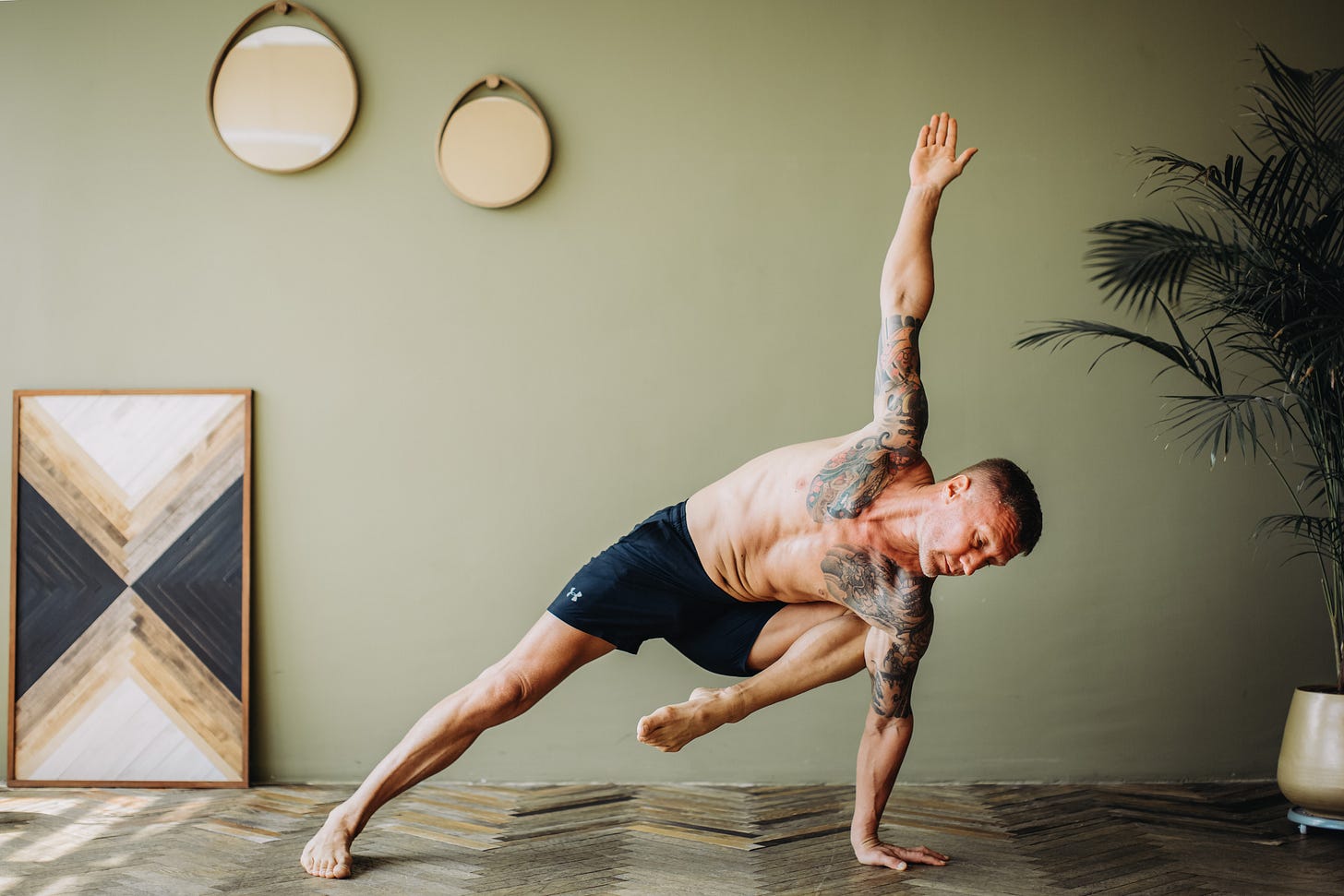Using Meditation to Improve Your Fitness
Core - Edition Nº15

Being an avid fitness enthusiast and amateur athlete naturally meant I always wanted to find ways to make myself better.
Better, to me, once meant stronger, faster, leaner. Lifting over 100kg as a young teen or running a 5k comfortable under 20 minutes. I pushed myself to find that edge because results (and my ego) were all I cared about.
Unsurprisingly, this led to a myriad of plateaus, anxiety, and overuse injuries. Lots of them. My body couldn’t keep up (could I blame it?) as training at 100% all the time was never going to be sustainable.
Taking a break from it through the Covid pandemic gave me time to realise that better means something different. Better goes beyond your physical ability and incorporates the mind.
I practised meditation, and it was instrumental in restoring vitality to my mental health after years of injury. It taught me to slow down and take a moment. Being better in life lives inexorably linked to acknowledging our physical and mental health; because to improve one is to improve the other.
My meditation practices weren’t strictly tied to laying cross-legged while I thought about nothing. I meditated when I walked. When I cooked, did yoga or cleaned. Or when I wrote. The guiding principle around it was to draw attention to where I am, and what I’m doing, and to focus deeply on it.
I applied it to my workouts, and it became easier to go longer. The better I let distractions pass, the more I improved the quality of my workouts and, thus, my fitness. The more attention I then paid to my injuries and, importantly: the faster I fixed them.
Blending meditation and fitness is not a novel idea. But expanding meditative thoughts and ideas into other areas like fitness is often less considered. It then begged the question: how can meditation improve performance? How can it keep me injury-free? How can it help me maintain strength and mobility as I get older?
Recovery
In my teens, I never cared about proper recovery techniques because I relied on the fact I was so young.
I used to do lots of yoga because it was fun. But no active recovery, no cross-training, and I definitely paid no attention to my nutrition. This was stupid. And it all feasibly contributed to the issues that came after.
Combined with my intensive approach to training, it didn’t take too long until I encountered my first bouts of knee pain and worse back pain. That meant longer recovery periods and poor sleep. Irritability and being short with myself and others.
I fell out of love with training. It became a burden. A job. At university, it turned into something I had to do rather than something I get to do. A few years after university, I learned about the idea of mindfulness meditation which taught me to focus on my breathing. Noticing when my mind starts to wander and “returning to my breath” put me into a place where I felt more attentive to the more positive elements of my life.
Performing these sessions in the morning and evening connected me to the things I did — be it a training session, work, or a simple outdoor walk. Long blocks of anything is easier now because I find it easier to switch off and think about how I feel, rather than occupy myself with future anxieties.
Goal setting
I’ve had a bit of a love-hate relationship with goals.
Most people set them based on an arbitrary measure. “I want to lose weight” or “I want to be fitter”. Why not set a clear-cut objective? And then, once that objective is set, why not just focus on the gains you make towards it, not the outcome itself?
Goals should have a set-and-forget principle applied to them. Once you know where they are, invest yourself so deeply that you inherently hold yourself accountable for acting on it without needing to fixate on how long it might take to complete or where you are compared to others.
At a young age, we’re mostly focused on the results of our actions because we like to tell people how good they are. But as I got older, I started to care less about the results and more about the experience; because the journey towards the goal meant more than reaching the goal.
Meditation helps you open up to new and more exciting experiences, motivated by the decision to act and accomplish than by speed or strength or an attractive number.
Performance
I’m not stronger, faster or more muscular (yet) than I was back when results were all I cared about. But I am a million times happier.
Because how I think of performance has completely shifted.
Performance isn’t a time or distance or number on a scale anymore. I don’t care about being better than anyone else. I’m not interested in having the highest 1-rep max for my squat anymore.
I care about being consistent, happy, and fulfilling longevity. The quality of experience and the joy that it gives me. How much stress I can relieve and how good I can feel. The newly found prowess and depth of my mind.
Meditation opens your eyes to a better life through goals that are well designed for long-term wellbeing. It helps you see the world differently and interact more intentionally. It sets you up for success, whether from something as small as being more deliberate with what you eat and drink, or as big as following a 6-month fitness routine.
By making meditation a part of your life, you can lead a life of better meaning, progression, and significance — then, improving fitness simply becomes a byproduct of leading a better life.


